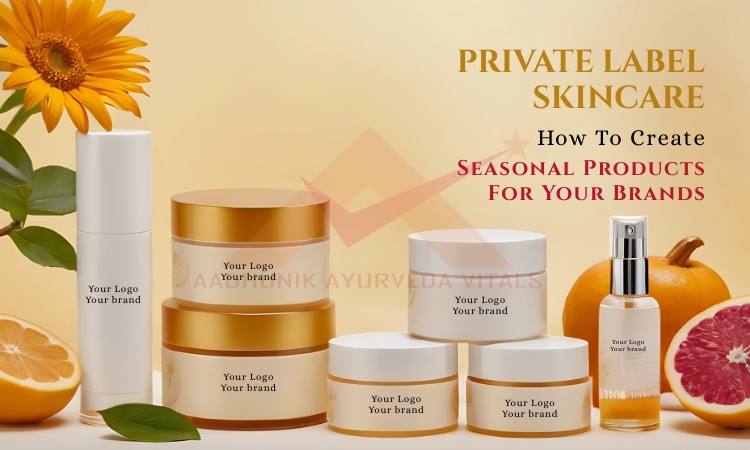
Private Label Skincare: How To Create Seasonal Products For Your Brands
Private Label Skincare: How To Create Seasonal Products For Your Brands | Understanding the Seasonal Skincare Market | Why Choose Plant-Based Ingredients for Seasonal Skincare? | The Benefits of Plant-Based seasonal Skincare | Creating Private Label Seasonal Skincare Products: A Step-by-Step Guide | Seasonal Skin Care Needs Around the World: A Regional Perspective | How Private Label Brands Can Use This Regional KnowledgeCreating seasonal skincare products has become a crucial strategy for brands looking to stay relevant and cater to consumers' ever-changing skin needs throughout the year. From the intense heat of summer to the dry, cold air of winter, each season presents unique challenges for skin health. As consumers become more aware of these seasonal concerns, there is a growing demand for products specifically designed to address issues like dehydration, sun protection, oil control, and skin renewal during different times of the year.
Private label skincare manufacturers play a vital role in helping brands tap into this market. By formulating products tailored to seasonal needs, manufacturers enable brands to offer high-quality, effective solutions that attract customers year-round. With the right seasonal formulations, effective packaging, and marketing strategies, brands can not only meet consumer demand but also strengthen their market position, ensuring long-term success.
Understanding the Seasonal Skincare Market
Why Seasonal Products Matter
The importance of creating seasonal skincare products cannot be overstated. With each change in season, the skin experiences different environmental stresses—extreme heat in summer, dry air in winter, and humidity during the spring and fall. These environmental factors affect the skin in various ways, leading to issues like dehydration, irritation, and breakouts. Seasonal skincare products are designed to address these specific concerns and to provide the skin with the care it needs during different times of the year.
Why Seasonal Products?
- Customized Solutions: Seasonal skincare offers targeted solutions to address the unique challenges posed by each season.
- Increased Customer Engagement: Offering seasonal products keeps your brand relevant and provides an opportunity for limited-edition collections that attract customers.
- Brand Loyalty: Customers appreciate a brand that understands their specific skincare needs and provides tailored products for those needs, especially when the formulations align with their eco-conscious values.
In a market where natural and plant-based products are becoming increasingly desirable, aligning your brand with these values ensures you're appealing to a growing segment of consumers who are focused on cleaner, greener beauty. Plant-based skincare products are not only more sustainable but also often better for sensitive skin, offering gentle yet effective care.
Why Choose Plant-Based Ingredients for Seasonal Skincare?
As the clean beauty movement gains momentum, more and more consumers are looking for products that contain plant-based ingredients rather than synthetic chemicals. This shift is motivated by the increasing awareness of the harmful effects of synthetic additives like parabens, sulfates, and phthalates, as well as the environmental impact of chemical production.
The Benefits of Plant-Based seasonal Skincare
- Gentle and Chemical Free: Plant-based ingredients are naturally gentle and do not cause irritation, making them ideal for all skin types, including sensitive skin.
- Sustainable and Ethical: Plant-based products are often more environmentally friendly. The sourcing of plant-based ingredients tends to have a lower carbon footprint and is more sustainable than synthetics.
- Rich in Nutrients: Many plant-based ingredients are packed with vitamins, antioxidants, and essential fatty acids that nourish and protect the skin. These natural compounds support skin health and promote a youthful, glowing complexion.
Using plant-based ingredients also means your skincare formulations can be vegan and cruelty-free, further enhancing your brand’s reputation among eco-conscious consumers. Whether you are creating a rich winter moisturizer or a refreshing summer sunscreen, plant-based ingredients offer the versatility and efficacy that seasonal skincare demands.
Creating Private Label Seasonal Skincare Products: A Step-by-Step Guide
Creating seasonal skincare products requires a deep understanding of both the needs of the skin and the properties of the ingredients you’re working with. By choosing plant-based ingredients that align with the unique characteristics of each season, you can develop products that not only address skin concerns but also enhance the overall skin care experience. Below is a step-by-step guide to creating effective, plant-based seasonal skincare products.
1. Identify Seasonal Skin Needs
Before you begin formulating your products, it's essential to understand the skin's needs during each season. The skin’s behavior changes with the weather, and the key to effective seasonal skincare is to cater to these changes.
- Winter: During the colder months, the skin tends to lose moisture due to lower humidity levels and indoor heating. This results in dry, flaky, and irritated skin. Your products should focus on intense hydration, skin barrier repair, and protection from the elements.
- Spring: As the weather begins to warm up, the skin may experience some residual dryness from the winter, but it’s also the time for renewal and rejuvenation. Products should focus on gentle exfoliation, hydration, and skin brightening.
- Summer: The skin tends to produce more oil in the summer due to the heat and humidity. Sun exposure can also lead to damage. Summer skincare should focus on oil control, sun protection, and soothing the skin after exposure to the sun.
- Fall: In the fall, the skin may experience dryness as the humidity drops, and skin can appear dull. Products should focus on nourishment, hydration, and protection from the dry air.
2. Select the Right Plant-Based Ingredients
Once you've identified the seasonal needs, the next step is to select the appropriate plant-based ingredients that address those concerns. Here are some plant-based ingredients ideal for each season:
Winter:
- Shea Butter: Known for its rich, moisturizing properties, shea butter is perfect for locking in moisture during the dry, cold winter months.
- Coconut Oil: A natural emollient that helps retain moisture, making it ideal for keeping skin hydrated in the winter.
- Aloe Vera: Provides soothing relief for irritated skin, and its hydrating properties make it an excellent addition to winter formulations.
- Jojoba Oil: Closely resembles the skin's natural oils, making it an effective moisturizer that doesn’t clog pores.
Spring:
- Rosewater: A natural toner that hydrates, soothes, and refreshes the skin, helping to restore moisture balance.
- Lavender Tea Extract: Rich in antioxidants, it helps fight free radical damage and promotes skin rejuvenation.
- Cucumber Extract: Known for its cooling properties, cucumber extract is perfect for spring skin care as it helps to refresh and hydrate the skin.
- Chamomile: Calms the skin and reduces redness or irritation, which is often a concern during the transition to warmer weather.
Summer:
- Aloe Vera Gel: Soothes sunburns and provides cooling relief after sun exposure.
- Rose water: Acts as a natural astringent to tone and tighten pores while controlling excess oil during the hot summer months.
- Citrus Oils (Lemon, Orange, Grapefruit): Rich in vitamin C and antioxidants, citrus oils help brighten and refresh the skin, making them ideal for summer skincare.
- Tea Tree Oil: Known for its antibacterial properties, tea tree oil helps control acne breakouts, which can be more common in the summer due to increased sweat and oil production.
Fall:
- Rosehip Oil: Rich in vitamins A and C, rosehip oil helps regenerate the skin and fade sunspots or damage caused by the summer sun.
- Olive Oil: Moisturizes and nourishes the skin, helping to restore hydration and elasticity during the drier months of fall.
- Lavender Oil: Calms and soothes irritated skin, while also offering a relaxing fragrance.
3. Formulate the Product
Once you’ve selected your plant-based ingredients, it's time to formulate the product. The formulation will depend on the type of product you are creating (moisturizer, sunscreen, cleanser, etc.), but each formula should prioritize the effectiveness of the ingredients and the seasonality of the skincare needs.
- Texture: For winter, a richer, thicker formula is often needed to provide deep hydration. In the summer, opt for lighter textures such as gels or oils that won’t clog pores
- Fragrance: Choose plant-based essential oils for fragrance, but be mindful of the intensity. For winter, you might choose calming scents like lavender, cinnamon or cedarwood, while summer might benefit from citrus, floral or mint-based scents.
- Packaging: Seasonal packaging that reflects the mood of the season (warm, earthy tones for fall, fresh pastels for spring, etc.) can help reinforce the appeal of your product.
4. Test and Perfect the Formulation
Before launching your seasonal skincare products, it's crucial to test them for efficacy, stability, and safety. Ensure that your plant-based ingredients remain effective over time and that they are safe for all skin types, especially sensitive skin. A patch test is recommended for all formulations, particularly when introducing a new product to your skincare line
Seasonal Skin Care Needs Around the World: A Regional Perspective
While seasonal skin changes are a global concern, different regions experience unique climates that influence skin health and the types of products consumers seek. Understanding these geographical differences allows private label skincare brands to create highly targeted seasonal product lines for each market.
1. Seasonal Private label skin care products for Canada
Climate: Harsh winters with sub-zero temperatures and dry indoor heating; short but humid summers.
Seasonal Needs:
- Winter: Rich moisturizers with ingredients like shea butter, calendula, and squalane to combat dryness and protect the skin barrier.
- Summer: Lightweight, hydrating products with SPF and antioxidants like lavender or niacinamide to protect against sun damage and pollution.
2. Seasonal Private label skin care products for Japan
Climate: Distinct seasons – cold winters, hot and humid summers, and rainy spring.
Seasonal Needs:
- Spring (Pollen Season): Anti-inflammatory ingredients like chamomile and licorice root to reduce redness and sensitivity.
- Summer: Oil-control and pore-minimizing products with eucalyptus or mint extract, rice water, or charcoal.
- Winter: Hydrating yet non-greasy formulas like hyaluronic acid serums and rice bran oil-based moisturizers.
3. Seasonal Private label skin care products for Australia
Climate: Summer spans December–February; hot, dry interior and humid coastal areas.
Seasonal Needs:
- Summer: Broad-spectrum SPF is critical, along with after-sun care like aloe vera gel and malabar plum extract (a rich source of Vitamin C).
- Winter (milder): Lightweight hydration with jojoba oil, focusing more on wind protection than deep moisturization.
4. Seasonal Private label skin care products for Singapore
Climate: Equatorial – hot, humid, and rainy year-round.
Seasonal Needs:
- Year-Round: Oil-control, mattifying products, and light gel-based moisturizers. Ingredients like rose water, tea tree, and cucumber help reduce breakouts and soothe inflammation.
5. Seasonal Private label skin care products for Dubai (UAE)
Climate: Extremely hot summers, mild winters, and low humidity.
Seasonal Needs:
- Summer: High SPF, skin-cooling gels, and anti-pigmentation serums. Aloe vera, prickly pear, and vitamin C are in high demand.
- Winter: Gentle exfoliators and nourishing creams with argan oil or squalane to restore moisture lost in the dry air.
6. Seasonal Private label skin care products for Africa (varied climate regions)
Northern Africa: Dry and hot, similar to the Middle East.
Sub-Saharan regions: Tropical and humid in some areas; dry savannahs in others.
Seasonal Needs:
- Dry Regions: Products with rich emollients like hempseed oil, gotu kola oil, and shea butter.
- Humid Regions: Lightweight, breathable formulations that offer hydration without clogging pores—think aloe vera, hibiscus, and tea tree oil.
7. Seasonal Private label skin care products for United Kingdom
Climate: Mild but damp winters, cool summers, and unpredictable rain throughout the year.
Seasonal Needs:
- Winter: Hydration and protection from cold winds with occlusive-rich products using oats, beeswax, and plant oils.
- Summer: Gentle exfoliation, moisturization, and SPF-infused products for sensitive skin that may suffer from rosacea or redness.
How Private Label Brands Can Use This Regional Knowledge
For brands targeting global expansion or specific export markets, seasonal and regional customization offers a powerful way to:
- Develop product lines that resonate locally
- Create targeted marketing campaigns
- Launch location-specific seasonal kits or bundles
- Ensure regulatory compliance with regional skincare ingredient preferences.
By partnering with experienced private label skincare manufacturers and exporter like Aadhunik Ayurveda, you can craft tailored, plant-based seasonal solutions for diverse climates while staying true to clean beauty principles. This not only helps brands build trust across geographies but also positions them as attentive and adaptable in a competitive global market.
Our Private Label Seasonal Skincare Product Range:
At Aadhunik Ayurveda, we offer a wide range of seasonal skincare products designed to meet the specific needs of every season. Whether you're looking for winter hydration or summer sun protection, we have you covered with high-quality, customizable formulations.
Here are some of the seasonal skincare products we offer:
- Private Label Winter Hydration Cream
- Private Label Summer Sunscreen Gel with SPF 50
- Private Label Aloe Vera After-Sun Gel
- Private Label Anti-Pollution Facial Mist
- Private Label Winter Repair Lip Balm
- Private Label Vitamin C Glow Serum
- Private Label Nourishing Hand Cream
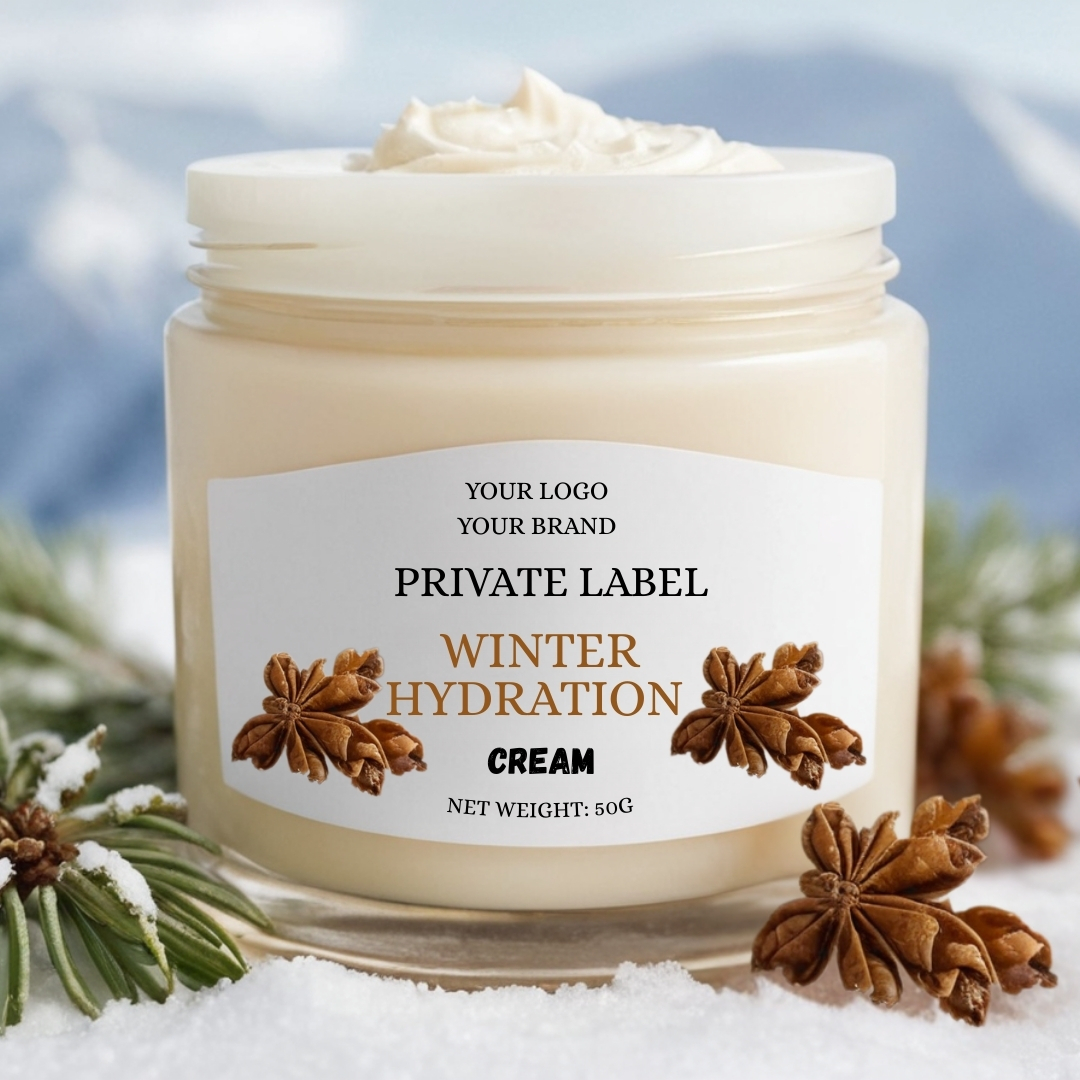
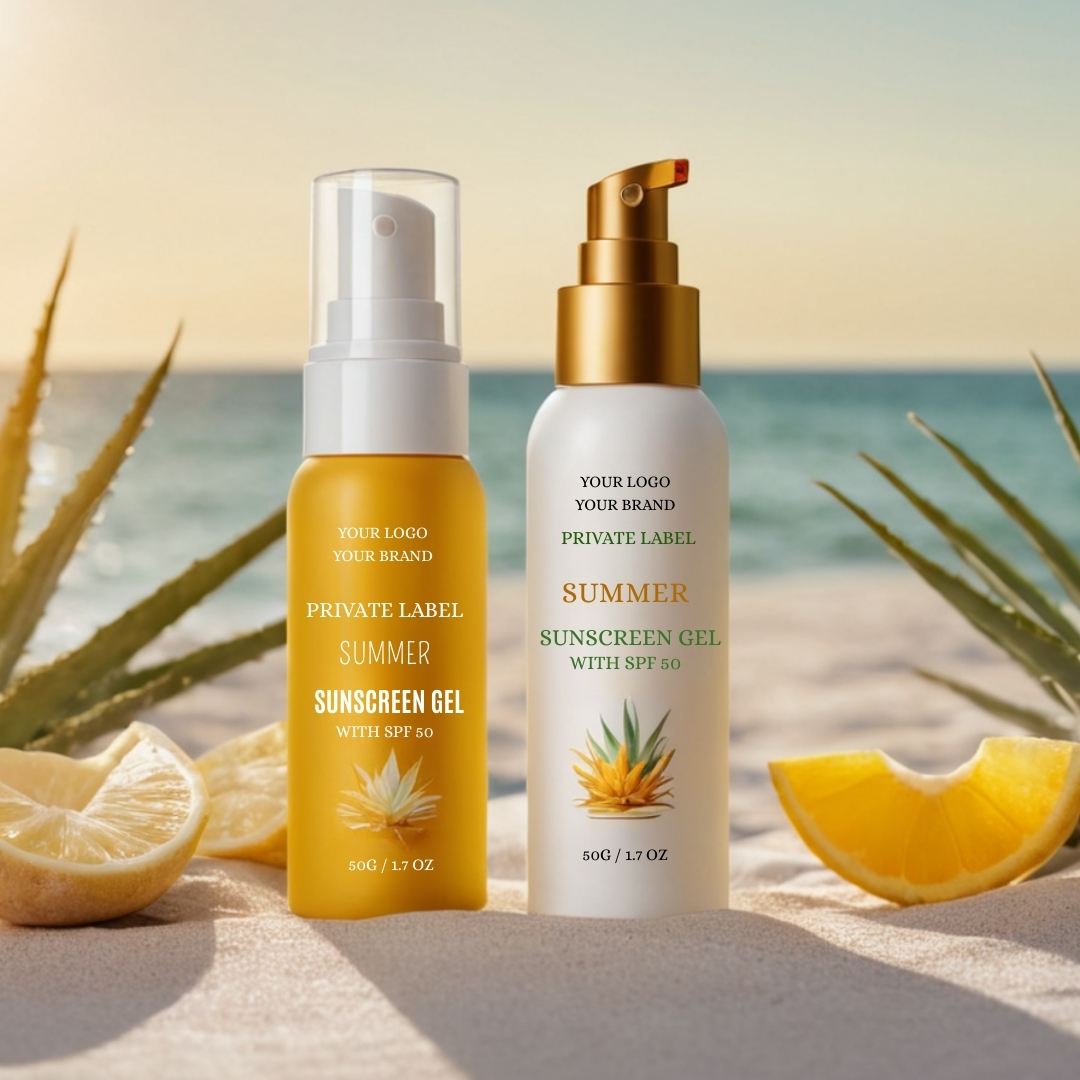

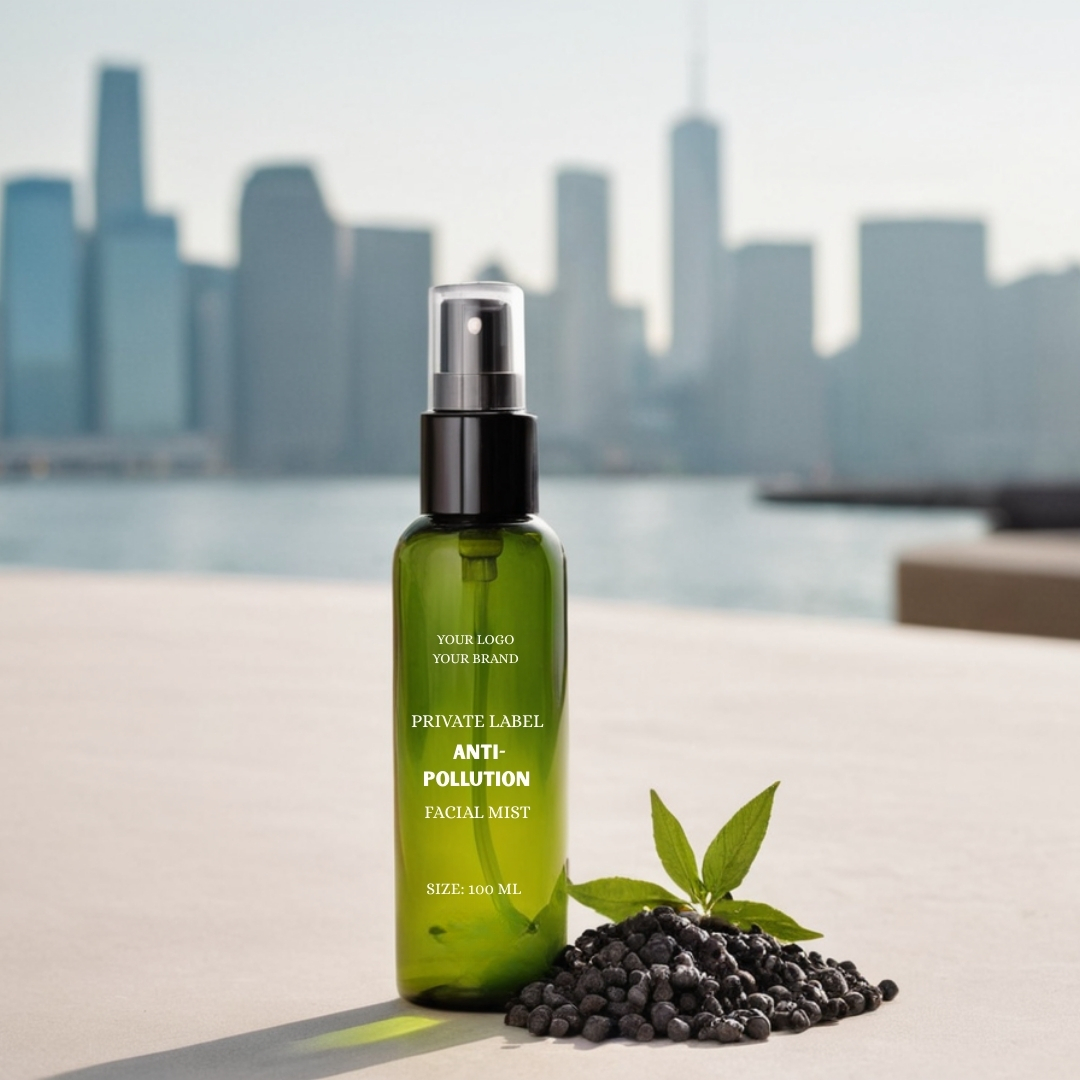

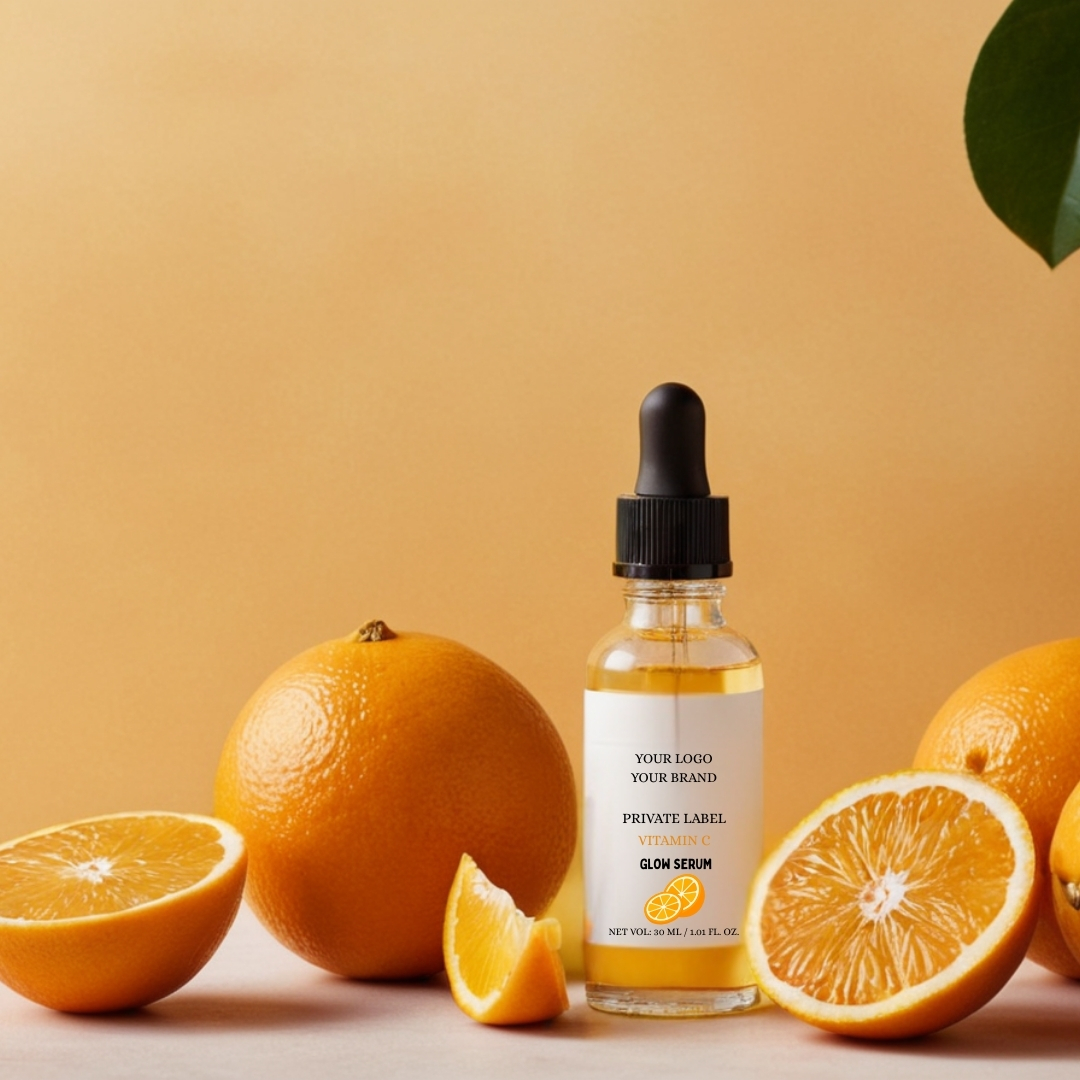
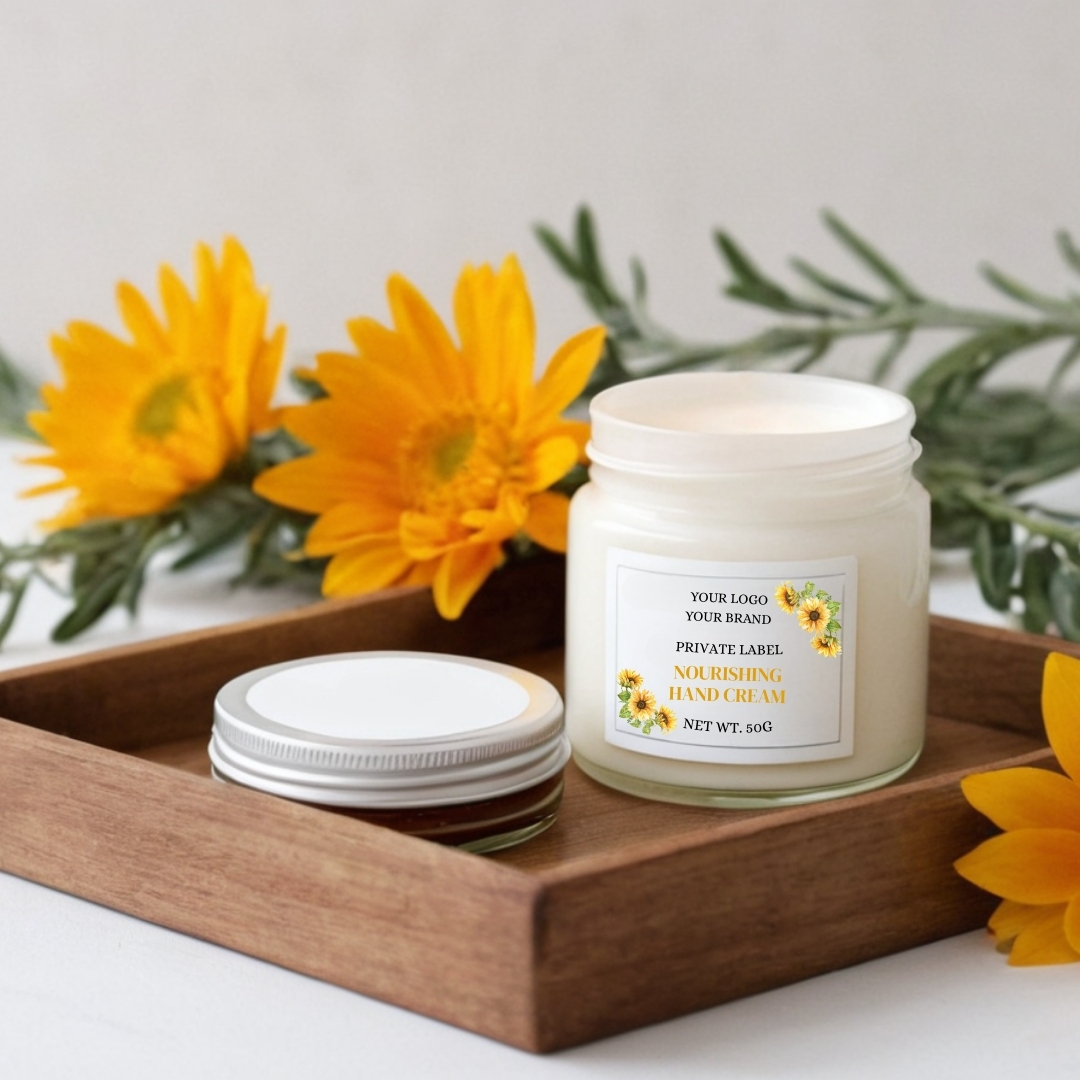
Marketing Your Plant-Based Seasonal Skincare Line
Effective marketing strategies will help position your seasonal skincare line as both a timely and essential product. Here are some key marketing tips for your seasonal plant-based skincare products:
- Highlight the Benefits of Plant-Based Ingredients: Consumers are increasingly looking for clean, green beauty products. Emphasize the plant-based nature of your ingredients in all your marketing materials.
- Seasonal Packaging and Themes: Use packaging that reflects the seasonal nature of your products. For example, use bright colors and floral designs for spring, or earthy, warm hues for fall.
- Content Marketing: Create blog posts, social media content, and email campaigns that educate customers on how your products address their specific seasonal skincare needs.
- Limited-Edition Products: Offering limited-edition seasonal products can create a sense of urgency and exclusivity, prompting customers to act quickly before the season changes.
As a private label skincare manufacturer, we play a crucial role in helping brands develop seasonal products that are safe, effective, and meet the needs of consumers. From formulating with the right ingredients to ensuring timely product launches and quality packaging, our goal is to assist brands in offering products that align with seasonal changes and customer expectations. By working closely with us, brands can stand out in the competitive skincare market, increase customer loyalty, and drive seasonal sales.
FAQs:
How do I select the right ingredients for each season?
Each season has distinct skin concerns. In winter, focus on moisturisation + hydration; in summer, prioritize hydration + sun protection; and in spring, focus on renewal and soothing.
How can I be sure the seasonal products are safe?
Our manufacturing process includes rigorous stability testing and patch testing to ensure the safety and efficacy of all products.
Can a private label manufacturer help with seasonal product creation?
Yes, we specialize in developing customized seasonal skincare products that align with your brand’s vision and meet your customers' needs.